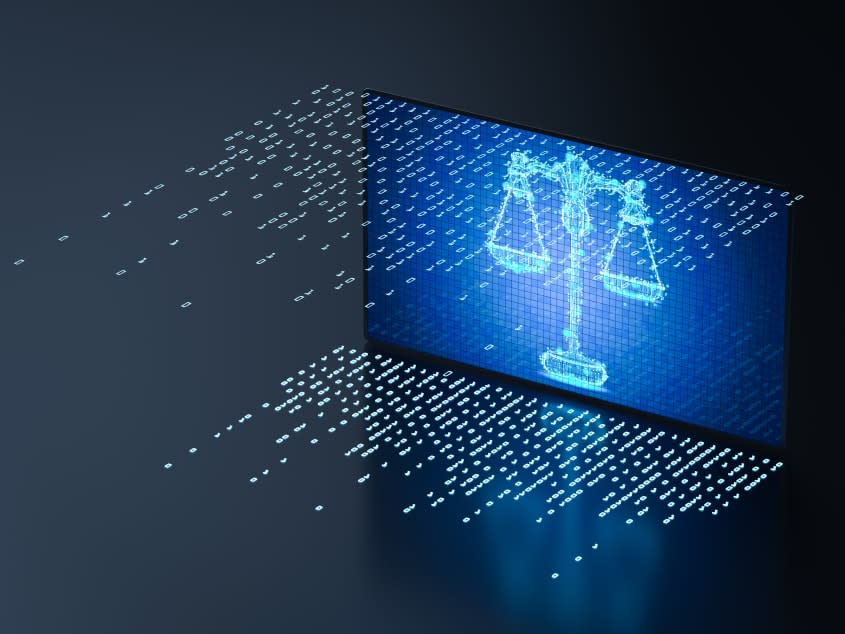How countries around the world are trying to regulate artificial intelligence

The rapid advancement of artificial intelligence technology has stoked both fear and existential dread among industry experts and politicians alike. Although AI has immense potential, industry insiders have repeatedly warned of the technology's dangers and called for governments to step in with regulations.
Studies suggest that "efforts to regulate AI appear to be gathering pace," the World Economic Forum stated. Data from Stanford University's 2023 AI Index shows that 37 bills related to AI were passed into law throughout the world in 2022. While some nations are still grappling with this issue, others are implementing national regulations to monitor and keep the use and development of artificial intelligence tech in check.
European Union
With the Artificial Intelligence Act one step closer to becoming law, the EU has surpassed other Western countries in the global push to pass AI regulations. Canada is currently considering a similar proposal called the Artificial Intelligence and Data Act. In the United Kingdom, Rishi Sunak announced that the U.K. would convene a global summit for AI safety in the fall. "But the EU's AI Act, two years in the making, is the first serious attempt to regulate the technology," Dan Milmo wrote in The Guardian's Tech Scape newsletter.
The act was initially proposed in 2021, but the recent emergence of advanced generative AI, like OpenAI's ChatGPT, put renewed pressure on lawmakers to push the proposed regulations forward. The European Parliament approved the text in the draft of the AI Act on June 14, 2023, a significant step in eventually passing the proposal into law. The rules of the proposal encompass a wide range of AI technologies, including AI-generated deepfake videos, chatbots like ChatGPT, some drones and live facial recognition.
The EU has taken a tiered risk-based approach with the AI Act, categorizing applications according to the risk they pose to the public. Technology deemed an "unacceptable risk" would be banned outright. High-risk AI tools that could "negatively affect safety or fundamental rights" are required to submit to a risk assessment before being released to the public. And generative AI applications must disclose what copyrighted works they use to train their programs. The EU aims to have the law's final form passed by the end of the year. The next step is talks between the European Commission, the parliament's AI committee chairs, and the Council of the European Union to finalize the legislation.
United States
While they seem to be a long way away from solidifying federal regulations, the White House and Congress have recently made AI more of a priority. In October 2022, the White House released the Blueprint for an AI Bill of Rights, a list of proposed principles to guide how to design or use AI tech in a way that protects the American public from harm. The guide doesn't outline any repercussions for companies that do not adhere to the guidelines. Still, it does suggest ways to ensure the technology was built with protecting civil liberties in mind.
Since then, Sen. Chuck Schumer (D-N.Y.) has presented a framework for regulating AI, seeking to "give lawmakers a comprehensive crash course in AI in a setting where partisan rancor might be set aside" before they impose regulations, The New York Times reported. "In many ways, we're starting from scratch, but I believe Congress is up to the challenge," he said during a speech at the Center for Strategic and International Studies.
Behind the scenes, U.S. officials are "especially mindful of Washington's poor track record of swiftly tackling major technological change, and the failure to regulate social media early on looms especially large," CNN reported. Unlike other industries, Congress lacks a committee dedicated to technology. "As a result," Maya Kornber opined in Slate, "several different committees are throwing spaghetti against the wall in a real-time demonstration that Congress is simply not structured or resourced to do its job on AI."
China
China already had regulations to limit the spread of deceptively manipulated images, audio and videos, known as deepfakes, which went into effect in January. In April, the country's internet regulator, the Cyberspace Administration of China, unveiled a draft of rules that would hold creators of generative AI chatbots to the country's strict censorship regulations. The rules require companies to ensure that their "products uphold Chinese socialist values and do not generate content that suggests regime subversion, violence or pornography or disrupts economic or social order," the South China Morning Post summarized.
The State Council, China's cabinet, is poised to work on a submitted AI law draft as a part of its 2023 legislative plan. The draft is among 50 other measures to be reviewed by the National People's Congress Standing Committee. "On a smaller scale, tech hub Shenzhen in southern Guangdong province passed China's first local government regulation focused on boosting AI development in September last year," the South China Morning Post reported.
You may also like
Vietnam bans the 'Barbie' movie over map scene
Florida construction and agricultural workforces diminished after new immigration law takes effect
Judge limits how Biden officials can communicate with social media companies

 Yahoo Sports
Yahoo Sports 
